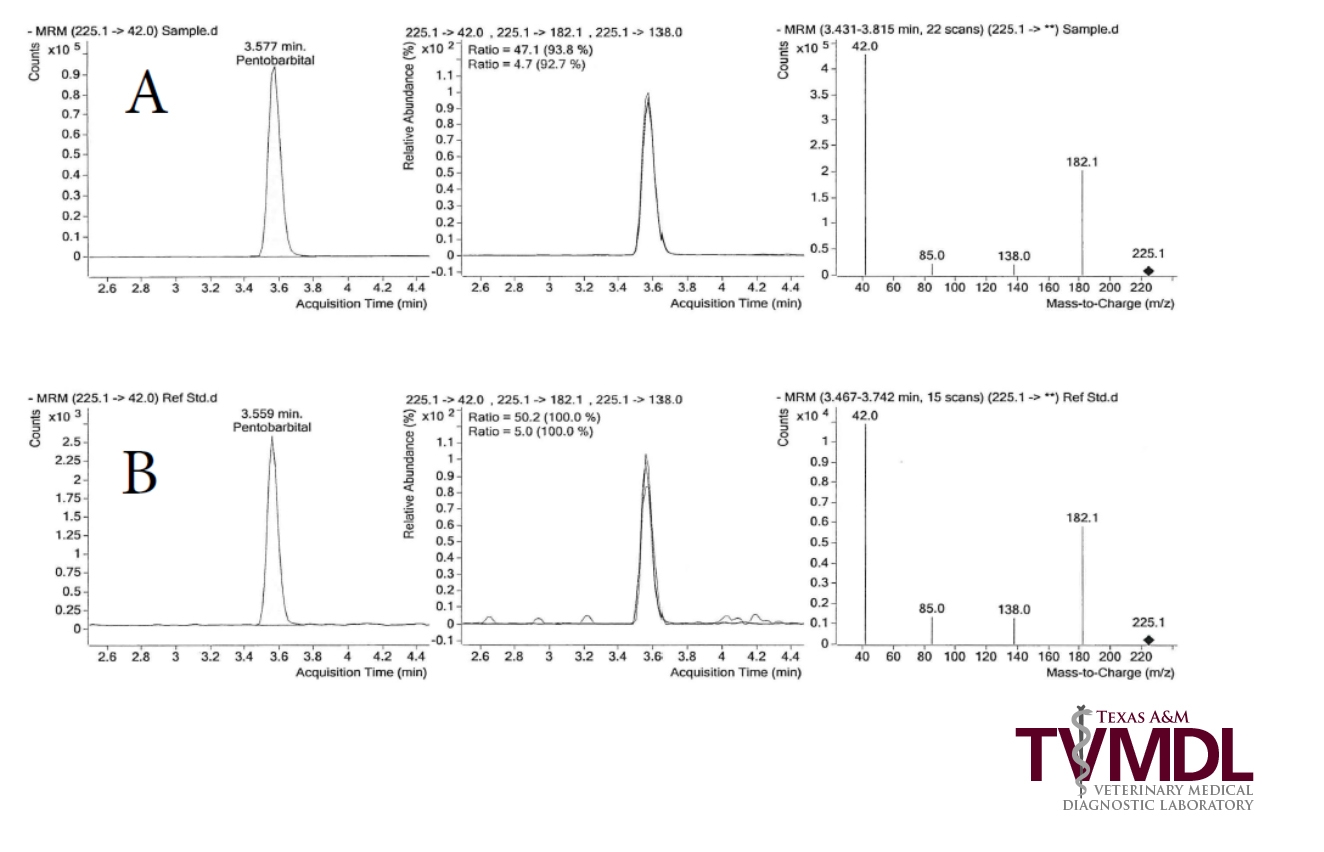Pentobarbital in a Turkey Vulture
Travis Mays, MS, PhD
Twenty turkey vultures were found dead near the vicinity of a horse that was euthanized. One of the turkey vultures was submitted to the Texas A&M Veterinary Medical Diagnostic Laboratory (TVMDL) for necropsy. Postmortem decomposition hindered a thorough diagnostic necropsy. Portions of all major organs were collected, and liver was submitted to TVMDL’s drug testing laboratory for barbiturate testing.
The liver weighed approximately 8 grams and was extracted using enzyme hydrolysis followed by solid phase extraction (SPE). Analytical testing for barbiturates was performed using liquid chromatography – tandem mass spectrometry (LC-MS/MS). Pentobarbital was confirmed in the liver by LC-MS/MS (Figure 1).
Pentobarbital is a Schedule II controlled substance in the United States and is a member of the barbiturate class. Because of its use in veterinary medicine as a euthanasia drug, the Food and Drug Administration, in 2003, added an environmental warning to animal euthanasia products stating that, “euthanized animals must be properly disposed by deep burial, incineration, or other methods in compliance with state and local laws to prevent consumption of carcass material by scavenging wildlife.”
For more information about this case contact, Analytical Chemistry Section Head, Dr. Travis Mays. To learn more about TVMDL’s test offerings, visit tvmdl.tamu.edu or call one of the agency’s full services laboratories.
